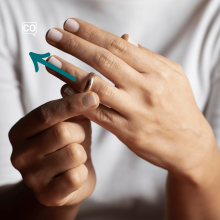Divorciarse (to divorce) - Pretérito perfecto, indicativo (Present Perfect, indicative) - Spanish

Divorciarse - Conjugation of to divorce in Spanish: Conjugation table, examples and exercises in the present perfect, indicative tense (Pretérito perfecto, indicativo).
Pretérito perfecto, indicativo (Present Perfect, indicative)
All conjugations and tenses: Divorciarse (to divorce) - conjugation and tenses - (Spanish)
Syllabus: Spanish lesson - Amor y amistad (Love and friendship)
Conjugation of to divorce in Pretérito perfecto
- yo me he divorciado I have divorced
- tú te has divorciado You have divorced
- él/ella se ha divorciado He/She has divorced
- nosotros/nosotras nos hemos divorciado We have divorced
- vosotros/vosotras os habéis divorciado You (plural) have divorced
- ellos/ellas se han divorciado They have divorced
Example phrases
- Yo me he divorciado recientemente. I have recently divorced.
- Tú te has divorciado y ahora vives solo. You have divorced and now you live alone.
- Él se ha divorciado después de veinte años. He has divorced after twenty years.
- Nosotros nos hemos divorciado pero seguimos siendo amigos. We have divorced but we are still friends.
- Vosotros os habéis divorciado por diferencias irreconciliables. You all have divorced due to irreconcilable differences.
- Ellos se han divorciado y comparten la custodia de los hijos. They have divorced and share custody of the children.
Exercise: Conjugate the verbs - divorciarse (to divorce)
Instruction: Choose the correct word, read the sentence out loud and translate.
Show answers Show translationDivorciarse (Pretérito perfecto, indicativo)
1. Él ... después de veinte años.
2. Ellos ... y comparten la custodia de los hijos.
3. Yo ... recientemente.
4. Vosotros ... por diferencias irreconciliables.
5. Tú ... y ahora vives solo.
6. Nosotros ... pero seguimos siendo amigos.